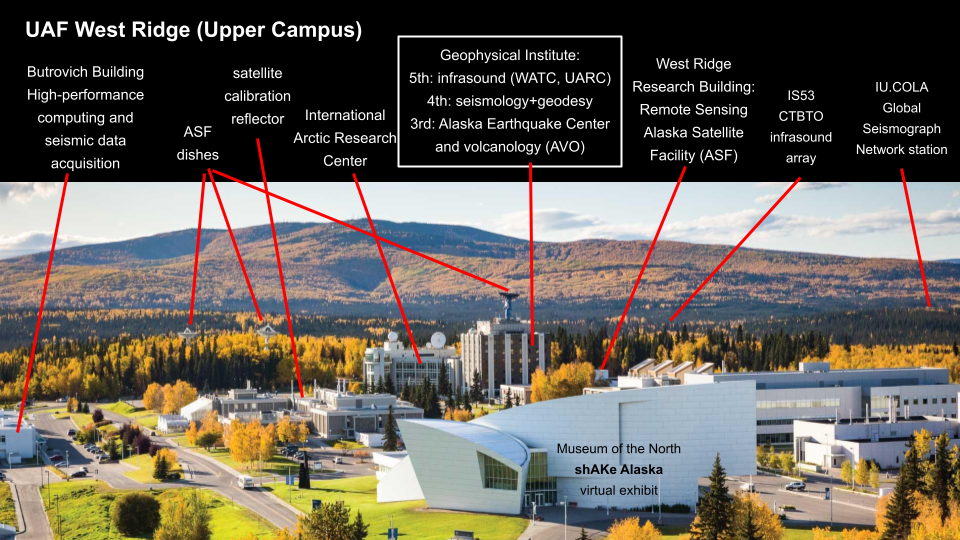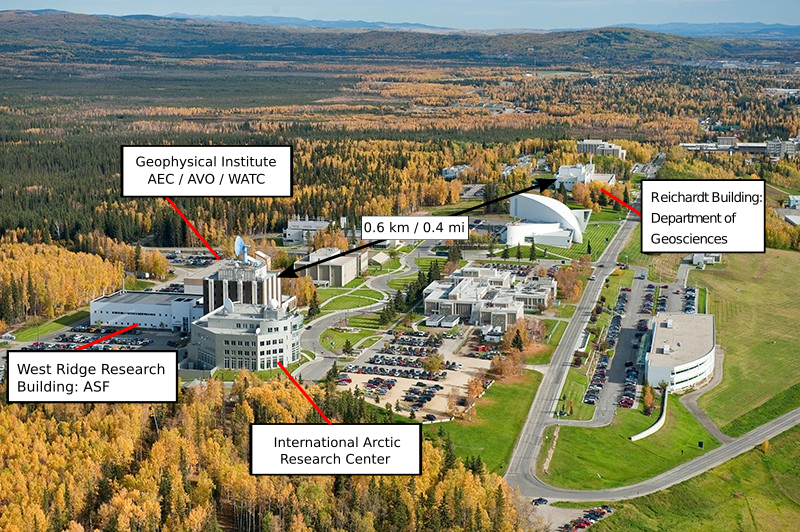|
phase~LAB volcanoes, earthquakes and the hydrosphere through geodesy |
prospective students
I am always looking for outstanding, motivated, quantitative, and self-driven students who have a great interest in figuring out what we can learn about the Earth by investigating tectonic processes, which includes earthquake, volcano and glacio-isostatic related deformation. Check my research and publications pages to get an idea of what I've worked on in the past. Don't hesitate to drop me a line if you have a specific idea in mind you'd like to work on. Given some lead time, developing a proposal out of this and seeking specific funding is always a possibility. Keep in mind that our discipline is highly quantitative; while it's not necessary to have any specific geophysical knowledge when entering the program, a strong quantitative background or the ability to quickly patch any gaps is instrumental for success (math, physics, computer science, etc).



During my career as a graduate student I was very fortunate to be involved in all aspects of the pipeline of geophysical research: data collection in the field, their analysis in the lab, model development, and interpretation. Developing a deep understanding of possible pitfalls in this process is important to support hypotheses and critically question findings. For that reason, it is my goal to expose students to the full spectrum of research; from data gathering over modeling to interpretations.
See UAF's information for prospective grad students as well as application materials here: https://www.uaf.edu/gradsch/prospective/
Come Study in Alaska! This is what it's like:
Solid Earth Science Facilities:

The picture above shows some of the key solid earth geophysics research facilities on UAF's West Ridge. There's no shortage of interesting, leading edge science to get involved in. And plenty of trails in the woods beyond.
GI - Department of Geosciences Relationship

The relationship between the Geophysical Institute, the facilities housed within it, and the Department of Geosciences tends to be a bit confusing on first look. Several faculty hold joint appointments in the GI and Department. Research Faculty are generally cooperating with the Department.
Prospective Geophysics / Geoscience graduate students apply for admission to respective degree program of the Department of Geosciences. The department awards your degree. Most geophysics faculty work in the GI, or the neighboring buildings. If your advisor works in the GI, you will too. Any of the facilities within the GI (AVO, AEC, ASF, WATC) could offer research assistantships, providing a stipend to finance your degree. This means that your research will be related to the science questions of these facilities, the department will award your degree.
Your classes, by the way, could be offered anywhere on campus. This can make for pleasant walks with view of the Alaska Range and the tip of Denali on high visibility days. In the winter it may be a bit chilly, but you're likely to be accompanied by Sun Dogs. (There's a shuttle.)
... some impressions of life here:
| Last modified: May 25 2023 16:21.